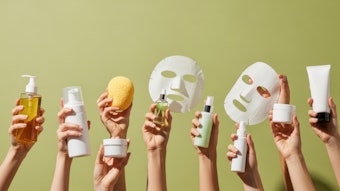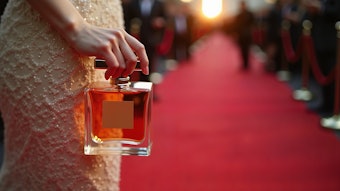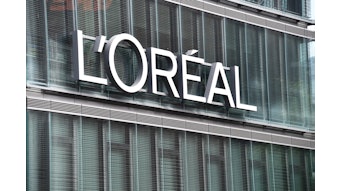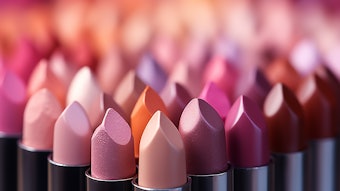L’Oréal signed a contract for the acquisition of Colombian makeup brand Vogue from its shareholders, according to an October 2012 press release. “The brand represents development opportunities outside of Colombia, particularly in Ecuador and Peru,” said Alexandre Popoff, L’Oréal’s executive vice-president of Latin America.
In Colombia, Vogue is the leader in mass-market makeup, with sales of approximately $38 million in 2011. In its press release, L’Oréal also noted that 2011 sales of Vogue outside Colombia grew by 21% over 2010, and sales outside of Colombia also increased to 12% of the total sales.
The move follows L’Oréal’s June 2011 $38 million investment to build a hair color production facility in San Luis Potosí, Mexico—the company’s largest such facility—which opened in mid-December 2012.
In other LA market moves for L’Oréal, Valentín González was named leader of the active cosmetics unit of its Argentine subsidiary, which includes the La Roche-Posay and Vichy brands. González has headed, and will continue to head, the regional luxury unit for the past 12 years.
In November 2012, the luxury division celebrated the first anniversary of its brand Yves Saint Laurent in Argentina. Despite the strict barriers on imports in Argentina, the brand, according to González, has met launch goals and has continued to develop in the region, offering a model for continued international expansion.
Avon Names New LA Leadership
In October 2012, Mariela Martínez was named Avon’s marketing planning head for the Southern Cone, which is comprised of Argentina, Chile, Bolivia, Uruguay and Paraguay. She has worked for the company since 2003, and replaces Claudia Germino, who will now be working as executive director of sales for the region.
Also, Andrés René Ordóñez was named Avon’s new general manager for Southern markets (Argentina, Chile, Bolivia, Uruguay and Paraguay). He was previously general manager of Avon China.
P&G Focuses on Productivity
Jorge Uribe, P&G’s president of Latin America, will became the company’s first global productivity and organization transformation officer, a position the company created as it works on improving its structure and cutting costs. Uribe, who took up the new role Dec. 1, 2012, will report directly to chairman and CEO Bob McDonald, and will also be part of a new productivity council of senior managers.
Tarek Farahat, formerly president of P&G Brazil, will step in as president of Latin America. P&G Brazil will now be led by Alberto Carvalho, former vice president for Gillette Global and manager of P&G for Argentina, Uruguay and Paraguay.
Mexico Sets Labeling Standard
In an effort to avoid misleading advertising of cosmetics and personal care products, the Mexican Federal Commission for Protection against Sanitary Risks (Cofepris) published an official standard for labeling.
Carlos Berzunza, president of the Chamber and Association of Home and Personal Care Industry (CANIPEC), said these changes were implemented to ensure honest labeling of cosmetics but, above all, to protect the health of the population and discourage the proliferation of “miracle” products with druglike claims. “It is expressly defined that cosmetics cannot be assigned the actions of a drug,” he said.
The new rule establishes guidelines in labeling for language, ingredients, quantities, toxic substances and amounts of each ingredient contained in the product. Hair dyes and sunscreen were applied a stricter standard, due to their high use in the country.
Peru’s Cosmetics Market Grows
Ángel Acevedo, president of the Peruvian Committee for Cosmetics and Hygiene (COPECOH), stated the country’s cosmetics and personal care sales grew by 14% in the first half of 2012, reaching a total of $1 billion. Personal hygiene, hair products and body care have led the growth. Per capita consumption of personal care products in Peru reached $159.
Ingredient Restrictions Standardized
The regulatory agencies of Argentina, Brazil, Paraguay and Uruguay (four of the five Mercosur nations) have accepted standardization of the percentages of specific ingredients in cosmetic formulas.
The limitations include sodium and potassium hydroxide in cuticle removers; aluminium chlorohydrate, its salts and complexes in deodorants; and hydrated magnesium silicate in baby powders. Restrictions were applied to thioglycolic acid and salts in products to straighten or wave hair; quinine and salts in shampoos and hair lotions; selenium disulfide in shampoos for dandruff; and most p-phenylenediamines in hair dyes.
In November 2012, Argentina’s Medicine, Food and Medical Technology Administration (ANMAT) was the first regulatory agency to apply the standard.
Cristina Kroll is a business journalist specializing in the beauty sector and living in Buenos Aires, Argentina. She has written for the main Argentine magazines related to the beauty business, and was a correspondent for French magazine Beauty Business News.










